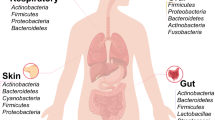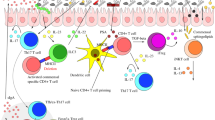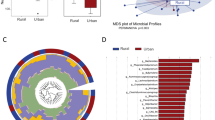Abstract
Background
In very low birth weight (VLBW) infants, human milk cream added to standard human milk fortification is used to improve growth. This study aimed to evaluate the impact of cream supplement on the intestinal microbiome of VLBW infants.
Methods
Whole genome shotgun sequencing was performed on stool (n = 57) collected from a cohort of 23 infants weighing 500-1250 grams (control = 12, cream = 11). Both groups received an exclusive human milk diet (mother’s own milk, donor human milk, and donor human milk-derived fortifier) with the cream group receiving an additional 2 kcal/oz cream at 100 mL/kg/day of fortified feeds and then 4 kcal/oz if poor growth.
Results
While there were no significant differences in alpha diversity, infants receiving cream significantly differed from infants in the control group in beta diversity. Cream group samples had significantly higher prevalence of Proteobacteria and significantly lower Firmicutes compared to control group. Klebsiella species dominated the microbiota of cream-exposed infants, along with bacterial pathways involved in lipid metabolism and metabolism of cofactors and amino acids.
Conclusions
Cream supplementation significantly altered composition of the intestinal microbiome of VLBW infants to favor increased prevalence of Proteobacteria and functional gene content associated with these bacteria.
Impact
-
We report changes to the intestinal microbiome associated with administration of human milk cream; a novel supplement used to improve growth rates of preterm very low birth weight infants.
-
Since little is known about the impact of cream on intestinal microbiota composition of very low birth weight infants, our study provides valuable insight on the effects of diet on the microbiome of this population.
-
Dietary supplements administered to preterm infants in neonatal intensive care units have the potential to influence the intestinal microbiome composition which may affect overall health status of the infant.
This is a preview of subscription content, access via your institution
Access options
Subscribe to this journal
Receive 14 print issues and online access
$259.00 per year
only $18.50 per issue
Buy this article
- Purchase on Springer Link
- Instant access to full article PDF
Prices may be subject to local taxes which are calculated during checkout





Similar content being viewed by others
Data availability
The data is openly available in the National Center for Biotechnology Information BioSample database under Bioproject ID PRJNA1062322.
References
Embleton, N. E., Pang, N. & Cooke, R. J. Postnatal malnutrition and growth retardation: an inevitable consequence of current recommendations in preterm infants? Pediatrics 107, 270–273 (2001).
Bertino, E. et al. Postnatal weight increase and growth velocity of very low birthweight infants. Arch. Dis. Child Fetal Neonatal Ed. 91, F349–F356, (2006).
Dusick, A. M., Poindexter, B. B., Ehrenkranz, R. A. & Lemons, J. A. Growth failure in the preterm infant: can we catch up? Semin Perinatol. 27, 302–310, (2003).
Wojcik, K. Y., Rechtman, D. J., Lee, M. L., Montoya, A. & Medo, E. T. Macronutrient analysis of a nationwide sample of donor breast milk. J. Am. Diet. Assoc. 109, 137–140 (2009).
Sullivan, S. et al. An exclusively human milk-based diet is associated with a lower rate of necrotizing enterocolitis than a diet of human milk and bovine milk-based products. J. Pediatr. 156, 562–567.e1 (2010).
Hair, A. B. et al. Randomized trial of human milk cream as a supplement to standard fortification of an exclusive human milk-based diet in infants 750-1250 g birth weight. J. Pediatr. 165, 915–920 (2014).
Product description, Prolacta Bioscience, Prolact+H2MF and Prolact CR. Industry, CA https://www.prolacta.com/en/products/preterm-nutrition-products/ (2014).
Hair, A. B. et al. Premature infants 750-1,250 g birth weight supplemented with a novel human milk-derived cream are discharged sooner. Breastfeed. Med. 11, 133–137, (2016).
Carr, L. E. et al. Role of human milk bioactives on infants’ gut and immune health. Front Immunol. 12, 604080 (2021).
le Doare, K., Holder, B., Bassett, A. & Pannaraj, P. S. Mother’s milk: a purposeful contribution to the development of the infant microbiota and immunity. Front Immunol. 9, 361 (2018).
Granger, C. L. et al. Maternal breastmilk, infant gut microbiome and the impact on preterm infant health. Acta Paediatr. 110, 450–457 (2021).
Ford, S. L. et al. Improved feeding tolerance and growth are linked to increased gut microbial community diversity in very-low-birth-weight infants fed mother’s own milk compared with donor breast milk. Am. J. Clin. Nutr. 109, 1088–1097 (2019).
Mai, V. et al. Fecal microbiota in premature infants prior to necrotizing enterocolitis. PLoS One 6, e20647–e20647, (2011).
Wang, Y. et al. 16S rRNA gene-based analysis of fecal microbiota from preterm infants with and without necrotizing enterocolitis. ISME J. 3, 944–954, (2009).
Montjaux-Régis, N. et al. Improved growth of preterm infants receiving mother’s own raw milk compared with pasteurized donor milk. Acta Paediatr. 100, 1548–1554 (2011).
Younge, N. E. et al. Disrupted maturation of the microbiota and metabolome among extremely preterm infants with postnatal growth failure. Sci. Rep. 9, 8167 (2019).
Bushnell B. BBMap. sourceforge.net/projects/bbmap/.
Beghini, F. et al. Integrating taxonomic, functional, and strain-level profiling of diverse microbial communities with bioBakery 3. Elife 10, e65088 (2021).
Buchfink, B., Xie, C. & Huson, D. H. Fast and sensitive protein alignment using DIAMOND. Nat. Methods 12, 59–60 (2015).
Segata, N. et al. Metagenomic biomarker discovery and explanation. 2011. Available from: http://genomebiology.com/2011/11/6/R60.
Oksanen, J. et al. (2017) R package ‘vegan’: community ecology package. R Package version 22 https://cran.r-project.org/web/packages/vegan/vegan.pdf.
Paradis, E., Claude, J. & Strimmer, K. APE: analyses of phylogenetics and evolution in R language. Bioinformatics 20, 289–290 (2004).
R Core Team. R: a language and environment for statistical computing (R Foundation for Statistical Computing, Vienna, Austria, 2014).
la Rosa, P. S. et al. Patterned progression of bacterial populations in the premature infant gut. Proc. Natl Acad. Sci. USA 111, 12522–12527, (2014).
Stewart, C. J. et al. Longitudinal development of the gut microbiome and metabolome in preterm neonates with late onset sepsis and healthy controls. Microbiome 5, 75 (2017).
Stewart, C. J. et al. Temporal bacterial and metabolic development of the preterm gut reveals specific signatures in health and disease. Microbiome 4, 67 (2016).
Moles, L. et al. Bacterial diversity in meconium of preterm neonates and evolution of their fecal microbiota during the first month of life. PLoS One 8, e66986–e66986, (2013).
Cong, X. et al. Gut microbiome developmental patterns in early life of preterm infants: impacts of feeding and gender. PLoS One 11, e0152751–e0152751, (2016).
Barrett, E. et al. The individual-specific and diverse nature of the preterm infant microbiota. Arch. Dis. Child Fetal Neonatal Ed. 98, F334 (2013).
Lynch, L. E. et al. Cholestasis impairs gut microbiota development and bile salt hydrolase activity in preterm neonates. Gut Microbes 15, 2183690 (2023).
Gensollen, T., Iyer, S. S., Kasper, D. L. & Blumberg, R. S. How colonization by microbiota in early life shapes the immune system. Science 352, 539–544 (2016).
Milani, C. et al. The first microbial colonizers of the human gut: composition, activities, and health implications of the infant gut microbiota. Microbiol Mol. Biol. Rev. 81, e00036–17, (2017).
Mirpuri, J. et al. Proteobacteria-specific IgA regulates maturation of the intestinal microbiota. Gut Microbes 5, 28–39, (2014).
Tabata, M. et al. Fortifier and cream improve fat delivery in continuous enteral infant feeding of breast milk. Nutrients 7, 1174–1183, (2015).
Klipstein, F. A. & Samloff, I. M. Folate Synthesis by Intestinal Bacteria. Am. J. Clin. Nutr. 19, 237–246 (1966).
Hill, M. J. Intestinal flora and endogenous vitamin synthesis. Eur. J. Cancer Prev. 6, (1997).
Asbury, M. R. et al. Human milk nutrient fortifiers alter the developing gastrointestinal microbiota of very-low-birth-weight infants. Cell Host Microbe 30, 1328–1339.e5 (2022).
Embleton, N. D. et al. Effect of an exclusive human milk diet on the gut microbiome in preterm infants: a randomized clinical trial. JAMA Netw. Open 6, e231165–e231165, (2023).
Kumbhare, S. V. et al. Source of human milk (mother or donor) is more important than fortifier type (human or bovine) in shaping the preterm infant microbiome. Cell Rep. Med. 3, https://doi.org/10.1016/j.xcrm.2022.100712 (2022).
Acknowledgements
We would like to thank the investigators from the Multicenter Human Milk Cream Study: Linda Cooper, MD, Jenelle Ferry, MD, Ursula Kiechl-Kohlendorfer, MD, MSc, Stephanie Attarian, MD, Barbara Warner, MD, Dale Gerstmann, MD, Padmani Karna, MD, Craig Anderson, MD, Vinayak Govande, MD, Boriana Parvez, MD, Andrea Willeitner, MD, Raja Nandyal, MD, Jose A. Perez, MD, David Riley, MD, Lewis P. Rubin, MD, Martin L. Lee, PhD, Cynthia L. Blanco, MD. Research reported in this publication was supported by the National Institute of General Medical Sciences of the National Institutes of Health under Award Number T32GM136554. A.B.H. is supported by the Maternal and Child Health Nutrition Training Grant T79 MC00023 and the National Institute of Health (NIH) grant R01 DK124614. The content is solely the responsibility of the authors and does not necessarily represent the official views of the National Institutes of Health. Prolacta Bioscience provided a research grant for the microbiome analysis in this study. Prolacta had no role in the execution of the experiments or interpretation of the results.
Author information
Authors and Affiliations
Contributions
Study design: A.B.H., S.R., G.O.A.-I., S.J.C., K.L.H. Data acquisition: H.Y., A.B.H. Data analysis: G.O.A.-I., K.L.H., S.J.C. Data interpretation: G.O.A.-I., K.L.H., S.J.C., S.R., G.A.P., A.B.H. Article drafts: G.O.A.-I., K.L.H., H.Y., S.J.C. Article revisions: G.O.A.-I., K.L.H., S.J.C., S.R., G.A.P., A.B.H.
Corresponding author
Ethics declarations
Competing interests
The authors declare no competing interests.
Consent for publication
Verbal and written information was given to the infants’ parents or legal guardians, and they gave their written consent to participate before the infant was included in the study.
Additional information
Publisher’s note Springer Nature remains neutral with regard to jurisdictional claims in published maps and institutional affiliations.
Supplementary information
Rights and permissions
Springer Nature or its licensor (e.g. a society or other partner) holds exclusive rights to this article under a publishing agreement with the author(s) or other rightsholder(s); author self-archiving of the accepted manuscript version of this article is solely governed by the terms of such publishing agreement and applicable law.
About this article
Cite this article
Adeniyi-Ipadeola, G.O., Hoffman, K.L., Yang, H. et al. Human milk cream alters intestinal microbiome of preterm infants: a prospective cohort study. Pediatr Res (2024). https://doi.org/10.1038/s41390-023-02948-w
Received:
Revised:
Accepted:
Published:
DOI: https://doi.org/10.1038/s41390-023-02948-w
This article is cited by
-
Supplementing human milk for preterm infants: a nutritional challenge?
Pediatric Research (2024)



